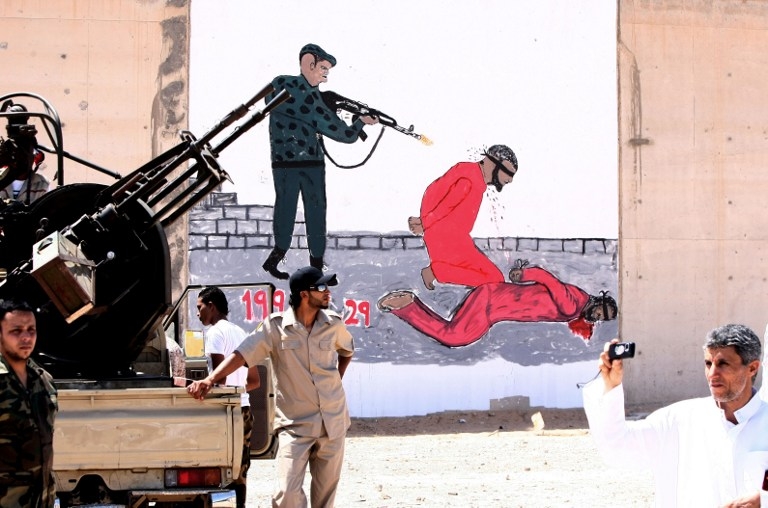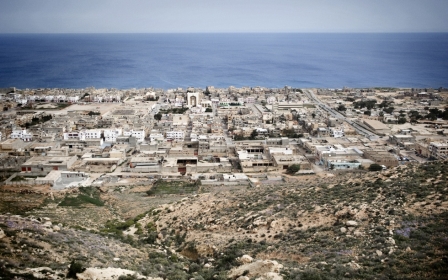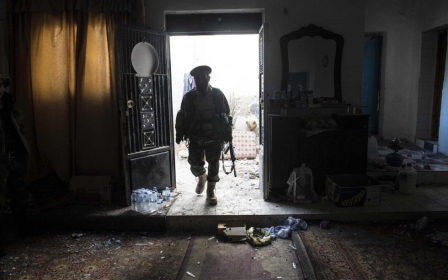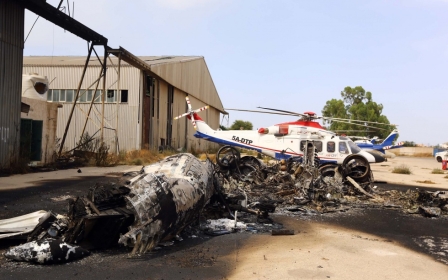The 'ticking time bomb' of mental health problems in Libya

Nearly one in every three Libyans are suffering from depression as a result of widespread human rights violations committed during the era of longtime dictator Muammar Gaddafi and the volatile and violent years that have followed his overthrow in 2011, according to a new report.
Results of the survey, conducted by the Danish Institute against Torture (Dignity), also show that one-fifth of households have a family member who has disappeared and 11 percent have had a family member arrested.
Of those arrested, nearly half say they were beaten and 20 percent experienced 'positional torture', including a method referred to as 'Honda' whereby prisoners were tied up to two metal bars and suspended in a posture resembling the Honda car symbol.
“Some the results were quite surprising,” said Ahlam Chemlali, one of the main authors of the report which brought field researchers into more than 2,600 Libyan households to talk face to face about their experiences.
Chemlali said she talked to many former political prisoners who experienced abuse during the Gaddafi era and now feel they are undergoing a “double trauma” as they live through the widespread violence across the country.
“You have all of these different militias fighting each other,” Chemlali said. “Before you only had Gaddafi and you knew who the bad ones were and who the good ones were. Now, it’s just a mix and very unpredictable to see where this threat might come.”
There has also been widespread "secondary trauma" within the country as videos of violence from the frontlines are shared and spread virally in an “intersection between reality and fiction,” said Chemlali. In this intersection, those committing the violence have become household personalities, like the ‘Butcher from Misrata’, a former butcher-turned-militia member who was followed by a film crew as a slashed people. Or the ‘Rapist from Brega’, who was filmed in several videos raping men, she said.
“It’s witnessed, so it’s like secondary trauma and it is very new,” Chemlali said.
Possible solutions
Many of those interviewed told researchers that had limited or no access to international humanitarian assistance and have resorted to familiar and local resources including family, friends, doctors and religious leaders.
Other have opted to self-medicate. This is, in part, a reflection of how mental illness in Libya – and regionally – is often stigmatised and attributed to everything from pagan symbols to evil eyes or not praying enough, Chemlali said. The use of heroin and cocaine to ease the symptoms of trauma, she said, is a particularly worrying trend amongst young militia men in a country full of weapons.
“This mix of weapons and drugs and trauma is a ticking bomb scenario, and that’s really what’s keeping the country very unstable and very dangerous,” she added.
There are very few mental health professionals in Libya, with many who have fled the country as a result of the violence, she said. Dignity, too, faced difficulties in bringing mental health professionals together for training in the country as a result of the associated stigmas as well as general mistrust and suspicion fostered over several decades.
Because Dignity’s field work was completed in October 2013 during a relative period of calm, the report suggests that as conflict continues the number of Libyans affected by human rights violations and mental health afflictions will continue to grow and will present “massive challenges” to any future Libyan government.
“The identified problems and needs within the population will not disappear, whether ignored or because of ignorance,” the report said. “It will affect the future of Libya and the attempts to build lasting peace, stability and the rule of law, regardless of the shape and form it might take.”
New MEE newsletter: Jerusalem Dispatch
Sign up to get the latest insights and analysis on Israel-Palestine, alongside Turkey Unpacked and other MEE newsletters
Middle East Eye delivers independent and unrivalled coverage and analysis of the Middle East, North Africa and beyond. To learn more about republishing this content and the associated fees, please fill out this form. More about MEE can be found here.




